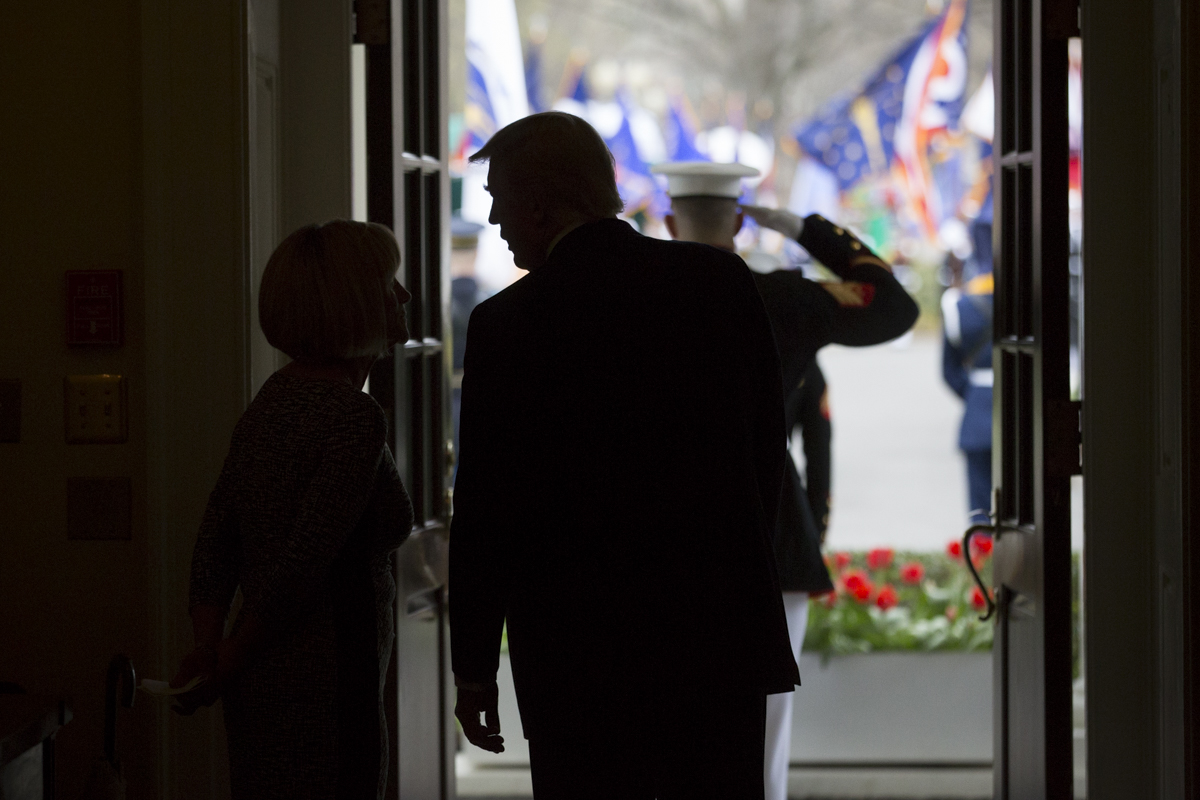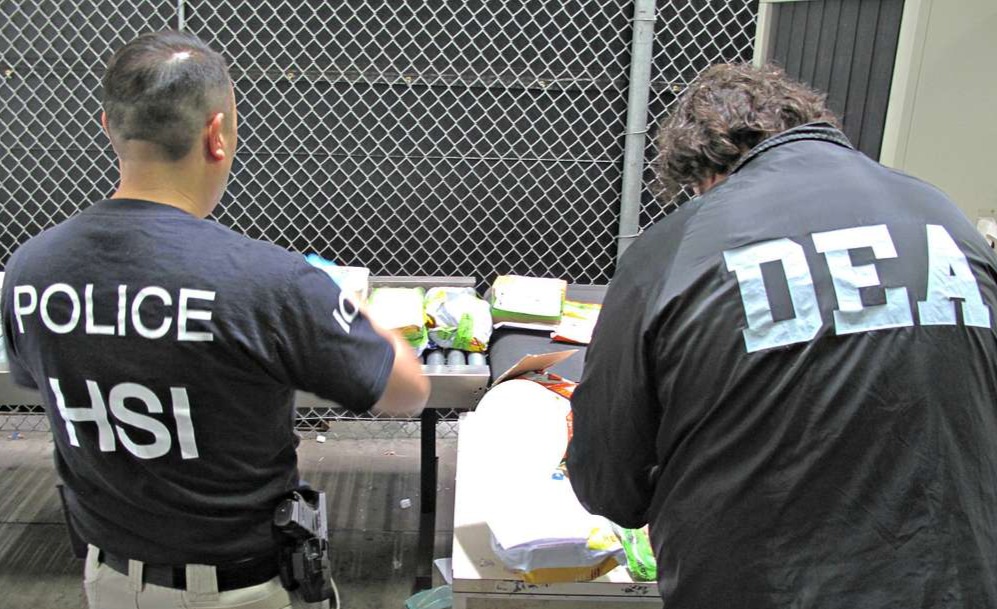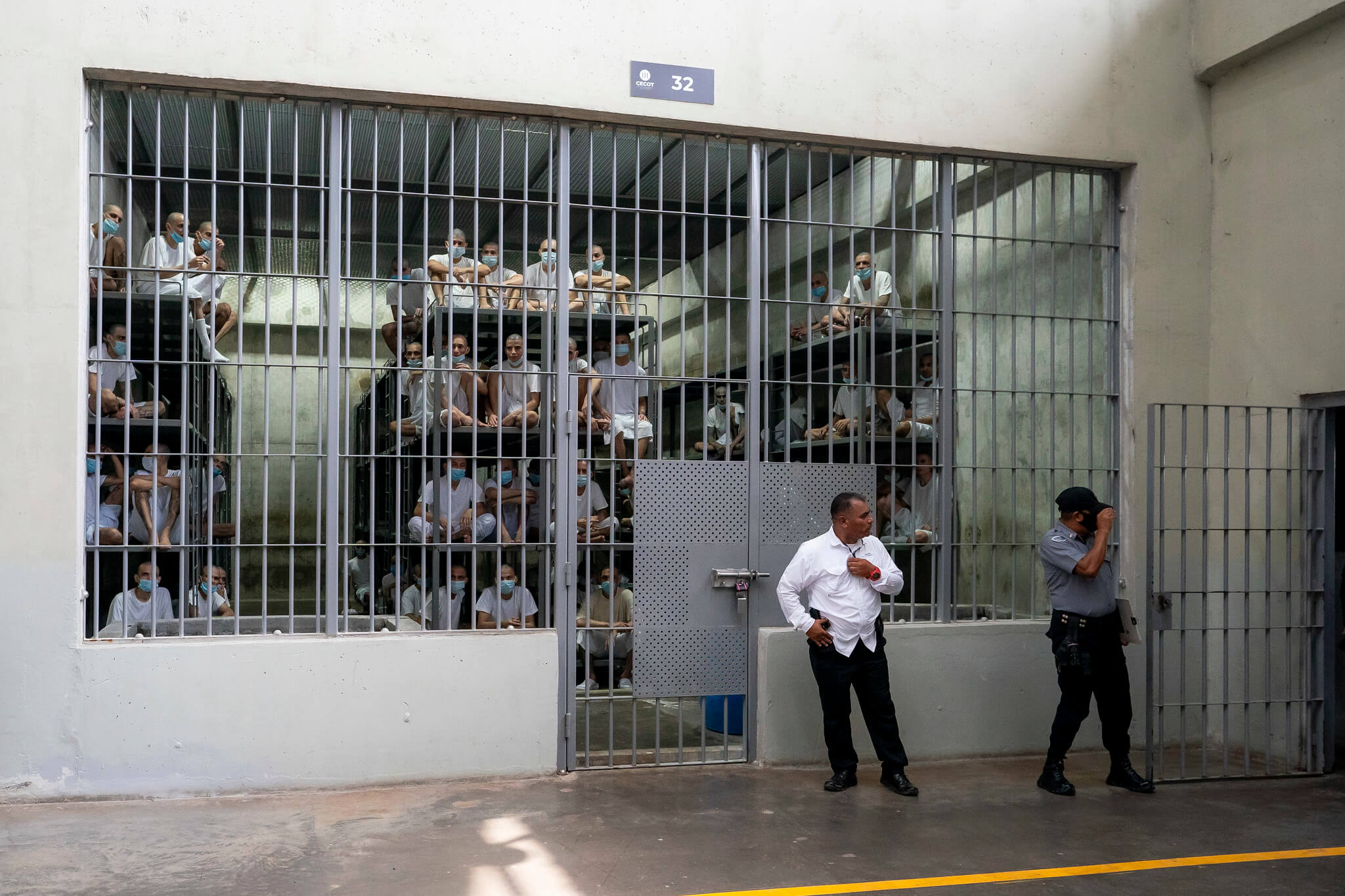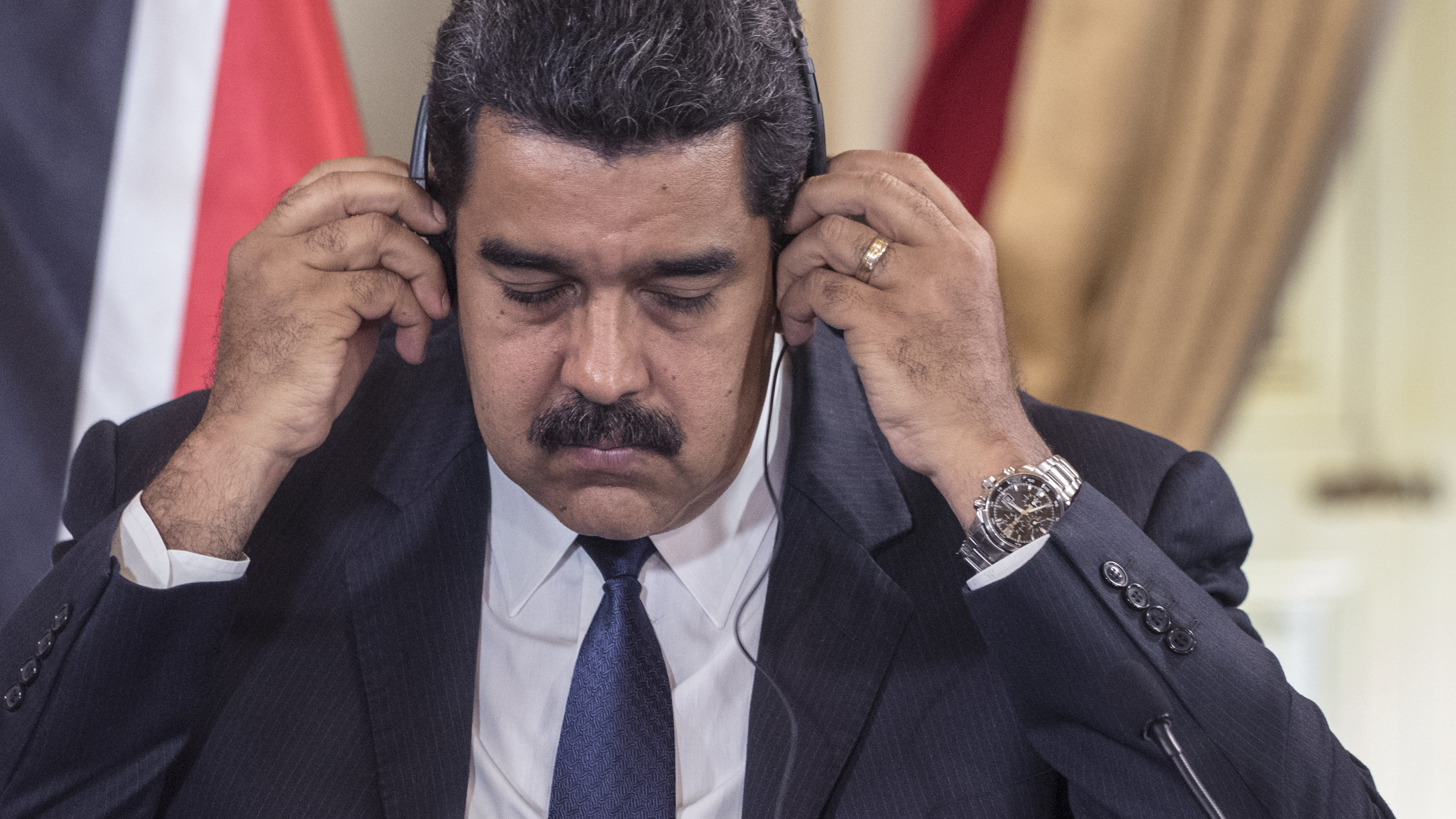The President “Lawyers Up”: Constitutional Duty and Private Interest, Part II
An earlier posting questioned how Donald Trump as both President and client will manage the conflict of public responsibility and private legal interest in the Russia matter. The inquiry into Russia interference in the U.S. election exposes the President and his associates to legal and political risk.

An earlier posting questioned how Donald Trump as both President and client will manage the conflict of public responsibility and private legal interest in the Russia matter. The inquiry into Russia interference in the U.S. election exposes the President and his associates to legal and political risk. The President must find a way to disregard that risk in attending to his constitutional—and, in this matter of national security, urgent—duty to support the congressional and Mueller investigations all the way through.
For any President in this position this would be hard to pull off. Donald Trump is not built for the challenge: this is a man who is finding it hard to separate himself from his private business or to refrain from tweeting as his emotions move him. Now he is lawyering up, and the personal defense will get in the way of the discharge of his duties. For Trump, the pressures to first save himself may prove overpowering.
The press secretary has now announced that on “all matters” relating to the Russia investigation, the press should refer their questions to the private counsel. It is not entirely clear how far the White House has shut itself off from the press on this topic. It may be proposing to keep specifically away from questions with the issue of obstruction at their core. Or, more generally, as the Spicer comment seemed to indicate, perhaps the entire subject of “investigations” is now off limits and must give way Mr. Trump’s personal legal concerns.
The lawyer for Mr. Trump will not, of course, make himself routinely available to the press. He will not come to the briefing room for regular Q and A. The Russia matter is now openly moved to the realm of private Trump legal interests.
The Character of the Conflict
The obstacles that these interests put in the path of disinterested presidential performance seem insurmountable. To prove that he or his campaign or associates have committed no offense, Mr. Trump and his legal team will be highly motivated to contest the very suggestion that Russia interfered in the election. He is not required to dispute any Russian connection to the hacking, but political and legal defense is improved if he can cast doubt on the Putin regime’s direct role and intentions.
And, of course, that is what he is now doing—notably, even in the period immediately following his retention of private counsel. On May 31st, the President tweeted out the accusation that the former CIA and FBI Directors have been lying about Russian actions and purposes:
So now it is reported that the Democrats, who have excoriated Carter Page about Russia, don't want him to testify. He blows away their....
— Donald J. Trump (@realDonaldTrump) May 31, 2017
...case against him & now wants to clear his name by showing "the false or misleading testimony by James Comey, John Brennan..." Witch Hunt!
— Donald J. Trump (@realDonaldTrump) May 31, 2017
So the President repeated that the inquiry is a “witch hunt,” which is another way of putting his point that there is nothing there to be found.
Of particular significance is his challenge to John Brennan’s congressional testimony. Brennan was not testifying about the Comey dismissal or other evidence of obstruction. He was presenting his concerns about the Russia government’s plans to insinuate itself into the Trump campaign and compromise key individuals associated with that organization. Brennan made clear that the targets of this program may well have been unaware of what was afoot:
I know what the Russians try to do. They try to suborn individuals and try to get individuals, including U.S. individuals, to act on their behalf, wittingly or unwittingly.
This is an intelligence judgment of vital national interest that, as it applies to the 2016 presidential election, the President has now publicly contested in the harshest terms. He did not say that Brennan is wrong; he disseminated and in this fashion endorsed the accusation that he is a liar. Mr. Trump is determined to put up an aggressive defense—but it is self-defense, rooted in what he deems to be his personal interest. If there is no Russian plot, and therefore no risk of a witting or unwitting association, there is no reason to suspect a motive for obstruction.
The transition to this next phase of personal self-defense comes with immediate consequences and will gradually force a reckoning with the fundamental question of how Mr. Trump can credibly carry on in his daily responsibilities while looking after his own legal welfare. Consider two specific examples of how these conflicts will play out: the invocation of privileges and access to classified information.
Privileges
Once Mr. Trump hired Marc Kasowitz, a first topic of conversation most certainly was the pending Comey public testimony about this firing. Did Mr. Trump’s new counsel advise him on the option of invoking executive privilege to limit or block this?
Of course, Mr. Kasowitz is concerned about Mr. Comey’s account. He would have advised Mr. Trump on all the procedural issues and substantive impacts of the appearance. The question of the president’s invocation of executive privilege would have come up in discussions between lawyer and client.
Now Mr. Trump and his lawyer may have speedily reached the conclusion that the claim would be imprudent, or would fail, in these circumstances. The problem remains that on this matter of profound constitutional significance, the president’s personal interests and public responsibilities are dangerously entangled. When arguing for the privilege, presidents appeal to the importance to the public of candid communications with their advisers; and yet the controlling consideration in withholding information in this case may have been, and would have certainly included, the president’s legal self-defense. The private lawyer counseling him on the issue would have been advising him in that interest, not the public’s.
This is not the last time, however, that this choice will be presented over the course of this investigation. Congress and Mr. Mueller will request more testimony from other government witnesses and ask for or subpoena more official documents. What will be the role of Mr. Trump's private lawyer in the deliberations over what will be produced or withheld on a claim of privilege?
Often, and most recently in the Bush administration, the Executive and the Congress look to settle the constitutional standoff over privilege with an accommodation. The Congress might accept a president’s offer to produce White House (or National Security Council) staff for closed-door interviews. The White House Counsel could also negotiate for interviews without transcripts and for testimony taken without an oath. Further conversations will take place over the scope of the questioning. As the White House counsel works through these details, to what extent will Mr. Trump's lawyers be involved in the internal deliberations or have a say in what limits the White House will insist on? Any accommodation the Administration pushes for may reflect as much the president’s legal interests as it does the institutional equities that he is sworn to protect. Or, in the worst case, the President will impelled to largely sacrifice the latter to ensure the best possible result for himself.
These are among the questions that it would be helpful to have the press raise with Mr. Spicer. Congress can also demand accountability for the arrangements made to balance these public and private responsibilities. But, as noted below, it's not clear that there is any satisfactory answer that can be given. The conflict inheres in the situation, and responsible lawyering or careful constitutional reasoning may not be enough to meaningfully mitigate it.
Security Clearances
Given the nature of the inquiry, much of the information bearing on it is extremely sensitive, protected at the upper tiers of the classification system. The President has access to this information; he has been briefed on it. He has also demonstrated that he is comfortable sharing it outside official channels, as he may have done in the meeting with the Russian foreign minister and ambassador. The question then arises of his private counsel’s access to this information, and of what counsel will do with it in zealously representing the client’s interests.
The press can inquire into whether the President and others of his aides have been briefed on what they can disclose to Mr. Kasowitz in the course of a representation on a major national security matter. They can ask about the terms, and if applicable, the clearances or security protocols, governing the treatment of sensitive information. This a tricky question because, in the end, the President, may disclose whatever he wishes—as he publicly affirmed in defending his apparent openness with the Russian Foreign Minister and Ambassador to the United States.
This issue is not one of presidential access, of which there will be none, to evidence specifically gathered by Mr. Mueller and his investigators. The president receives a regular stream of intelligence about Russia’s programs, strategies and intentions in seeking to exert influence over domestic affairs of other countries, and the United States in particular. The intelligence community will analyze what lies behind moves like Putin’s recent interview with Megan Kelly and the varying explanations he gave of who might have hacked the DNC and Podesta accounts. Much of this material would be valuable to the president’s personal legal and public defense. With this information, the Trump legal team can better anticipate and work around vulnerabilities in their main line of defense, which is: the Russians did not do this.
This is the task of defense counsel—to learn as much of the evidence that they can, and then decide how to counter, work around and minimize what is most damaging, while making use of what is most helpful to their cause. It is also one of the reasons why prosecutors become highly agitated by “joint defense” understandings through which the witnesses, suspects and targets of investigation work together to structure and color the “facts.” And here the facts are laden with surpassing national significance.
Mr. Kasowitz’s representation in his private practice of state-run Russian banking interests adds to the sensitivity of his access to highly classified information. Lawyers will always answer that their obligation of confidentiality prevents them from sharing with one client what they learn from another. There is no reason to doubt that Mr. Kasowitz adheres to the highest professional standards. From the perspective of the intelligence community, however, the operation of the attorney-client privilege may offer only limited reassurance in a national security investigation. The mistrust that has built up between the president and the intelligence services makes this problem immeasurably worse. The President has already crossed the public/private line in pushing the heads of Intelligence and the NSA to help close down the Comey (now Mueller) investigation.
It is not necessary to assume that Mr. Trump’s counsel will purposely disclose classified information in the course of the joint defense with other clients and witnesses. He can use this knowledge to shape these conversations and the strategies emerging from them without sharing the details. But as the Seventh Circuit stated not too long ago, in a case presenting the question of defense counsel access to FISA material: “counsel's obligation to zealously represent the defendant comes with a real risk of inadvertent or mistaken disclosure; the risk is particularly worrisome in a case involving sensitive information.”
A well-informed, aggressive defense strategy is in the President’s interest. It does not serve equally well, and it may undercut, the investigative effort to uncover the scope and nature of Russian intelligence activities to influence the 2016 presidential election.
The 25th Amendment Question
The President is entitled to his defense and the lawyer he prefers to run it. Run from within the the Oval Office, this defense must pit constitutional obligations against his private interests.
It may be tempting to think that a simple solution is possible. For example, could the president could agree to “recuse” himself from all access to information about Russia programs of electoral intervention in the United States or other countries, or by some definition, all other Russia-related information that may be relevant to his defense? It is hard to see how this could be done, or how it can squared with his responsibility as president. Some classified material that could be helpful to Trump- as-client may demand attention from him as president for other, official purposes, and his knowledge, direction or action would be required. The president cannot be denied information or left out of the deliberation on critical national security matters involving Russia. .
Only one such type of recusal seems plausible, and that is the choice open to the president to notify the Congress, pursuant to section 3 of the 25th Amendment, that he will be unable to fulfill his duties until the investigation is concluded. It is virtually inconceivable that Donald Trump will make that choice—or even consider it. It is more the Trump way to push ahead, to fight it out, to prove that he is not a loser. The possible outcomes then come down to surviving the investigation, or facing indictment and /or impeachment. An all-out legal defense that trades on public duty for private interest will either work for the President, or it will raise the odds that this will all go very badly for him.





